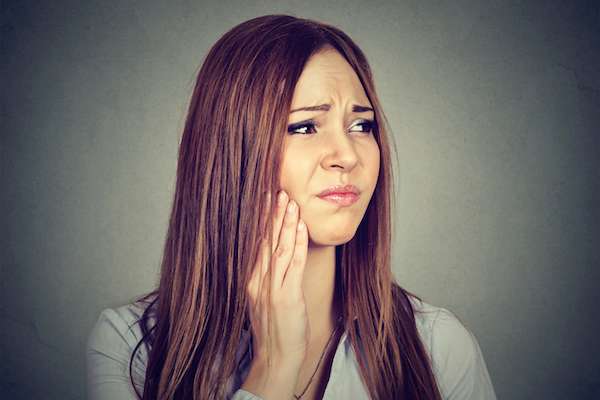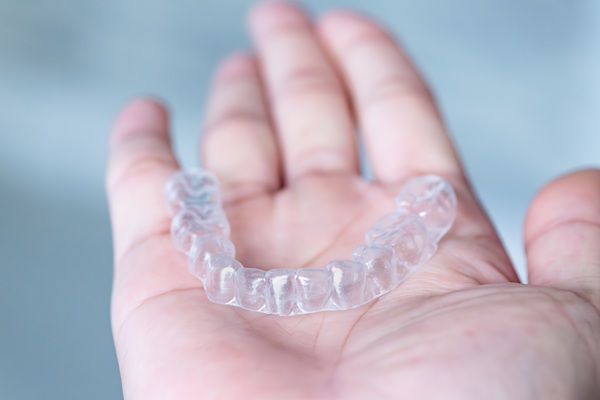 While it is always a good idea to have an emergency dentist on call, individuals can avoid a dental emergency and all the pain, cost and hassle that comes with one by taking preventative measures. In many cases, this simply entails adopting healthy lifestyle habits.
While it is always a good idea to have an emergency dentist on call, individuals can avoid a dental emergency and all the pain, cost and hassle that comes with one by taking preventative measures. In many cases, this simply entails adopting healthy lifestyle habits.
How patients can avoid a trip to an emergency dentist
Dental emergencies, which range from toothache to fractured teeth to abscesses, can be painful and costly. Many dental emergencies also come with the high risk of severe gum bleeding and even tooth loss. For these reasons and more, patients should take precautions to prevent dental emergencies from occurring entirely.
A strong oral hygiene routine
One of the easiest ways patients can avoid dental emergencies is by practicing good oral hygiene. The majority of dental emergencies involve severe tooth decay and rot, both of which can lead to dental abscesses, broken or chipped teeth, jaw bone deterioration and tooth loss. Regular brushing and flossing, paired with routine dental visits, can help keep the mouth clean and clear of bacteria and decay-causing cavities.
Stress relief
Stress can take a toll on all aspects of a person’s health, including dental health. Stress often causes individuals to engage in activities that can either cause or exacerbate existing oral health issues. Such activities include chewing on pens and other objects, clenching the jaw, nail-biting and teeth grinding. Each of these activities can crack or weaken the teeth or stress the nerves in the back of the jaw.
Many people try to stop engaging in these stress-related habits by adopting other forms of stress relief. Others find it is easier to tackle the source of the stress so that there is no desire to engage in the habits.
Mindful chewing
Certain foods, like certain habits, can damage the teeth if a person is not careful. Ice, popcorn kernels and hard candy are all examples of foods people commonly chew that can crack, chip or even break the teeth. Once a tooth becomes cracked, bacteria can easily enter the fissure and hide there, away from floss or a toothbrush. That bacteria can lead to cavities, tooth rot or, in some cases, a dental abscess. Avoiding hard foods may prove to be difficult at first, but doing so is well worth the self-control, as avoidance can prevent costly and painful dental emergencies.
Mouthguards
Many dental emergencies occur during sporting events. Individuals who participate in sports, especially contact sports, should wear mouthguards to absorb heavy blows to the mouth and protect the teeth from sustaining damage.
Check out what others are saying about our dental services on Yelp: Emergency Dentist in San Antonio, TX.
Regular dental care
Biannual dental examinations and cleanings are necessary to detect possible problems early on and to prevent issues from becoming more costly or extensive than they need to be. Additionally, a dentist can remove stubborn plaque, which can cause decay, as well as provide advice for what patients can do to reverse early dental carries.
Conclusion
Avoiding the need for the care of an emergency dentist does not have to be difficult. By following the above advice, you can protect your teeth and avoid a possibly costly and painful dental situation.
Request an appointment or call Rim Dental at 210-693-1939 for an appointment in our San Antonio office.
Related Posts
An impacted wisdom tooth requires emergency dentistry treatment. This type of tooth develops underneath the gums. It typically does not erupt above the gumline because there is no room for it. Impaction causes severe, distracting pain. If you want to know why you should go to an emergency dentistry facility for impacted wisdom tooth treatment,…
Gum bleeding signifies that you must visit the emergency dentistry office immediately. The dentist will examine your mouth to determine if the bleeding is due to simple irritation or a more severe condition. If your gums are bleeding, you must see a doctor immediately so the problem does not worsen. This article explains why anybody…
An emergency dentistry treatment can help correct sudden dental issues. Most dentists can even provide a permanent solution that will enable you to keep your tooth and prevent the problem from occurring again. If you want to know how emergency dentistry can help elevate your dental health, here are the details.A mild toothache may seem…


